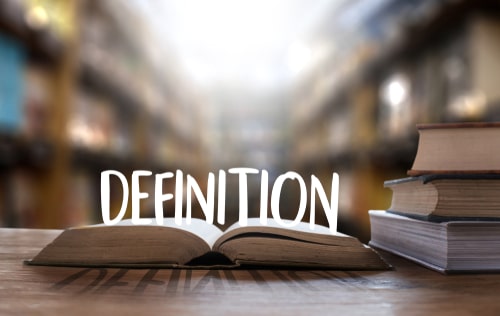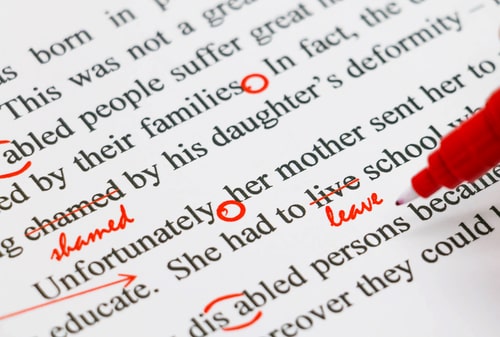

Every single sentence, be it written or spoken, talks about an action, and every action has a doer. This is the reason why there cannot be a sentence without a subject verb agreement, especially in the parlance of GMAT SC.

The entity about whom/which a statement is made is called the subject. Only a noun or a pronoun can be the subject of a clause. This noun entity can be a one-word noun or a noun phrase. Also, a noun/pronoun preceded by a preposition can never act as a noun. For example:
Needless to say that The sun and The wildlife of Africa are the respective subjects in the above-mentioned sentences.

The verb presents an action, an event, or a state of being of a noun. The verb is one of the most important part of a sentence. The verb denotes the timing (tense) of the action.
In the above-mentioned sentences, rises is the verb for the subject The sun, and attracts is the verb for the subject The wildlife of Africa.
The Subject Verb (SV) pair must adhere to a few conditions for its correct usage in any sentence. Those conditions are as follows:

A sentence must contain a subject and its verb. A sentence missing any of this entity is considered incorrect in GMAT SC.
The rose that I grew in my backyard is fragrant.
The above-mentioned sentence carries two SV pairs – The rose is and I grew. In this sentence, there is a verb for every subject and vice-versa. Hence, the sentence is correct.
The scientists describing global warming as a phenomenon that is caused by human beings.
In the above-mentioned sentence, the subject that has the verb – is caused. However, there is no verb for the subject The scientists. Hence, the sentence is incorrect because of the missing verb for one of the subjects.

Many stock traders in the United States have set out to become global investors, convinced that limiting their investments to the U.S. stock market, even though it is certainly home to the stocks of some of the world’s great corporations, restricted their gains. (OG2020#819, SC24321.01, with Choice A)
In the above-mentioned correct official sentence, there are three subjects – Many stock traders, limiting their investments…, and it. All the three subjects have their corresponding verbs – have set out, restricted, and is. Hence, the sentence is correct with regards to the usage of SV must exist.
Now, let’s study another version of the same sentence:
Many stock traders in the United States have set out to become global investors, convinced that limiting their investments to the U.S. stock market, which, while it is certainly home to the stocks of some of the world’s great corporations, restricted their gains. (OG2020#819, SC24321.01, with Choice B)
In the above-mentioned version of the official sentence, the pronoun which acts as a subject. But there is no verb for this subject. The missing verb makes this sentence incorrect.

Both these entities – nouns/pronouns and verbs – have number. In other words, these entities can be identified as singular and plural. The subject must agree in number with its verb. If the subject is singular, then its verb must also be singular and vice-versa.
The nails in the box that is made up of wood are rusted.
In the above-mentioned sentence, the subject The nails is plural and hence correctly takes the plural verb are. Similarly, the subject that that presents more information about the singular noun the box is associated with singular verb is.
The scientists describes global warming as a phenomenon that is caused by human beings.
In the above-mentioned sentence, the subject that that presents additional information about the singular noun a phenomenon correctly takes the singular verb – is caused. But the plural subject The scientists has the singular verb describes. This most certainly is ungrammatical and hence incorrect.
The growth projected for these storms in different computerized weather models varies widely. (OG VR 2020#295, SC08285, with Choice A)
In the above-mentioned correct official sentence, the subject – the growth – is a singular noun entity. Hence, it correctly takes the singular verb – varies.
Let’s analyze another version of the same sentence:
The growth of these storms, projected in different computerized weather models, vary widely. (OG VR 2020#295, SC08285, with Choice C)
The above-mentioned version of the official sentence is incorrect because this version uses plural verb vary for the singular subject The growth.

Apart from being present in the sentence and agreeing in number with each other, the subject and the verb must make sense with each other for their correct usage.
The impressive profile of this person is among the wealthiest in the world.
Per the above-mentioned sentence, it is the profile that is among the richest in the world. From our general-knowledge, we know that a profile of a person cannot be wealthy. It is a person who can be wealthy. Hence, although the above-mentioned example does not have any grammatical error, it is incorrect because t does not convey logical meaning as the subject makes no sense with its verb.
The person with an impressive profile is among the wealthiest in the world.
This example sentence presents logical meaning because per this sentence a particular person is one of the richest in the world. The subject makes sense with its verbs and hence presents logical meaning.
Fossils of the arm of a sloth found in Puerto Rico in 1991, and dated at 34 million years old, made it the earliest known mammal of the Greater Antilles islands. (OG 2020#859, SC07117, with Choice A)
Let’s first understand the meaning of this sentence. The sentence presents some information about some fossils. These fossils are of the arm of a sloth. The fossils were found in a place named Puerto Rico in 1991. These fossils are said to be 34 million years old. Per the sentence, the fossils made the sloth the earliest known mammal in a specific area known as the Greater Antilles islands.
In this sentence, the subject is Fossils, and the verb is made. Per this SV pair, the fossils made the sloth the earliest known mammal in some area. This SV pair does not make sense because just the fossils of any animal cannot make it the earliest known animal. So, even if the sentence does not have any grammatical error, it is incorrect because it conveys illogical meaning as the subject and the verb do not make sense with each other.
Let’s analyze the correct version of the same official sentence:
Fossils of the arm of a sloth, found in Puerto Rico in 1991, have been dated at 34 million years old, making the sloth the earliest known mammal on the Greater Antilles Islands. (OG 2020#859, SC07117, with Choice D)
In the above-mentioned version of the sentence, the subject is Fossils, and the verb is now have been dated at. Per this version, the fossils of the arm of sloth that were found in Puerto Rico in 1991 have been said to be 34 million years old. Because of this dating of the fossils, the sloth is the earliest known mammal in the Great Antilles islands. The sentence presents logical meaning and hence is the correct answer.